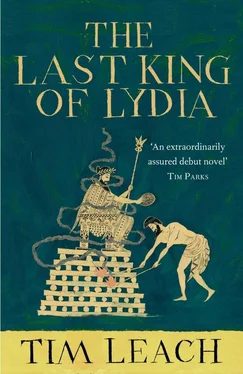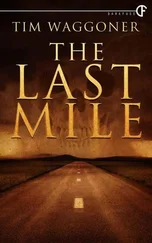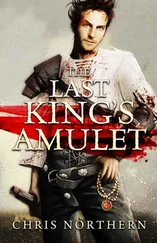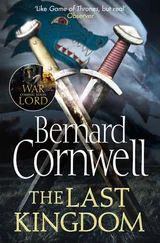Tim Leach - The Last King of Lydia
Здесь есть возможность читать онлайн «Tim Leach - The Last King of Lydia» весь текст электронной книги совершенно бесплатно (целиком полную версию без сокращений). В некоторых случаях можно слушать аудио, скачать через торрент в формате fb2 и присутствует краткое содержание. Год выпуска: 2013, ISBN: 2013, Издательство: Atlantic Books Ltd, Жанр: Исторические приключения, на английском языке. Описание произведения, (предисловие) а так же отзывы посетителей доступны на портале библиотеки ЛибКат.
- Название:The Last King of Lydia
- Автор:
- Издательство:Atlantic Books Ltd
- Жанр:
- Год:2013
- ISBN:9780857899200
- Рейтинг книги:5 / 5. Голосов: 1
-
Избранное:Добавить в избранное
- Отзывы:
-
Ваша оценка:
- 100
- 1
- 2
- 3
- 4
- 5
The Last King of Lydia: краткое содержание, описание и аннотация
Предлагаем к чтению аннотацию, описание, краткое содержание или предисловие (зависит от того, что написал сам автор книги «The Last King of Lydia»). Если вы не нашли необходимую информацию о книге — напишите в комментариях, мы постараемся отыскать её.
The Last King of Lydia — читать онлайн бесплатно полную книгу (весь текст) целиком
Ниже представлен текст книги, разбитый по страницам. Система сохранения места последней прочитанной страницы, позволяет с удобством читать онлайн бесплатно книгу «The Last King of Lydia», без необходимости каждый раз заново искать на чём Вы остановились. Поставьте закладку, и сможете в любой момент перейти на страницу, на которой закончили чтение.
Интервал:
Закладка:
‘That’s not the world we live in.’
‘So men like you always say. Are you to be rewarded for your work?’
‘I am. I can’t stay long. Cyrus has invited me to his private quarters tonight.’
‘Such an honour!’ she said. ‘You have done well. I don’t recall that Isocrates ever received such an invitation from you.’
Croesus shook his head. ‘That is more a reflection of my ingratitude than his lack of service.’
She laughed, and they fell together into a comfortable silence. He found that this love of silent company was shared by both Isocrates and Maia, and he wondered if they spent what little time they had alone together in wordless communion. It was alien to him, and at first he had always tried to fill such silences with idle talk. Now he let them continue unbroken.
He remembered the first time he had spoken to her as a slave, not long after Isocrates had come to give him his lesson in servitude. She too had taught him much, though not in the direct and practical fashion of her husband. She led by example, teaching him to take rest and pause whenever he could, to rediscover the value of laughter, for a slave a more unusual treasure than any other. The first time they had spoken he had asked her about Danae. Afterwards, when she had told him what she had seen, he wished he had not asked, that he did not know of the chase through the palace, the desperate plunge from its highest point on to the rocks below. He could have imagined a better end for her. Now, when he did not dream of fire, he dreamed of his wife, falling away from him.
He looked at the sky, and saw that the moon was up. ‘I must go. The king expects me.’
She nodded. ‘If you have a favour to ask him,’ she said, ‘will you-’
‘I know what you are going to ask.’ He paused. ‘If the king permits me, I will go to see him.’
‘It has been so long. They won’t allow me to go. I worry about him.’
‘I know, Maia. I will ask. I am sure Cyrus will let me. He is a good man, I think.’
She rolled her eyes. ‘Well, you know my thoughts. I don’t trust any king. He should spend some time in the kitchens or the fields, to teach him the meaning of hard work.’
‘He did, when he was younger. He was raised by farmers, or so the story goes.’
‘A story he cultivates to win favour. I don’t imagine that pampered man has worked a single day in his life.’
Croesus winced. ‘I don’t suppose I would want to know the kind of things you said behind my back, when I was still a king.’
‘No. You wouldn’t,’ she said.
He rose to go, but hesitated. He could see, though he did not want to, a fresh bruise on her cheek.
He remembered that he had spoken to Isocrates about those marks, when he was still a king. He had not found the courage to do so again as a slave.
He turned away from Maia, and tried to forget his cowardice.
When Croesus stepped into Cyrus’s tent, he crossed the threshold by only a few feet before he stopped and stared at the ground, awaiting instruction.
‘Relax,’ he heard Cyrus say. ‘You are here to be rewarded. Look around you.’
Croesus looked at the walls of the tent. Each was divided into dozens of panels, each panel embroidered with a different image. Cities, seas, farms, deserts, castles and temples. Some of them he recognized — the city of Pteria, now destroyed, living on only in this image. The sea view from Phocaea. He felt a coldness settle on him when he saw Sardis on its steep-sided hill, its buildings a mixture of Lydian and Persian design: the city as it would be rebuilt in a generation’s time. In this tent, Cyrus could look on his whole empire.
Half the panels were still blank.
‘Much work to be done,’ Cyrus said. ‘With your help, of course. Come.’ He beckoned Croesus into the next chamber.
The king’s personal tent, a vast construction when viewed from the outside, seemed even larger from within, a honeycomb of fabric chambers, a palace that was built anew every night.
The next chamber was a small one. In an ornate wooden chair, studded with precious gemstones, a woman sat, two children at her feet.
Croesus recognized Cassandane, one of Cyrus’s wives, and as beautiful as they all were, with golden eyes set high on a heart-shaped face, silver bracelets moving against dark, delicate wrists. Beside her, the two young boys knelt on the floor playing knucklebones. The younger played with a carefree ease, whilst the elder was hunched over, his eyes intent, the way children see significance in a game that no adult can understand. By them, a wax tablet lay untouched. A lesson ignored for a game.
Cyrus cupped his wife’s face in his hands and kissed her. ‘I have missed you,’ he said.
She accepted the kiss, then looked at him archly. ‘It would have been better if you paid more attention to me than to that Egyptian who shares your bed at night,’ she said.
He shrugged. ‘She pleases me.’
‘And I?’
‘You please me also.’
She shook her head, and her smile lay somewhere between anger and tolerance.
The older boy glanced up. ‘An Egyptian has hurt you, Mother?’
‘No, Cambyses,’ she said, ‘it isn’t like-’
The boy reached out and put a finger to her lips. He nodded gravely. ‘Don’t worry. When I am king, I shall destroy Egypt for you. Would you like that?’
‘You are your father’s son, you bloodthirsty beast,’ she said, laughing. She examined her visitor. ‘Cambyses, Bardiya. This man serves your father.’
‘You mean he is a slave?’ said Bardiya.
‘Yes. But an important one.’
‘There are important slaves?’ Cambyses said dubiously.
She looked Croesus over. ‘So some say.’
Croesus knelt down beside the boys. He remembered what it was he had loved about his own children when they were small. Like a coin, a child was all possibility. He smiled at Cambyses, the heir to the empire, charmed by the boy’s bright eyes. He stretched out a hand to touch the child on the head.
The boy bit him.
Croesus yelped and stood, shaking his hand. Cyrus laughed, and reached for his son. Cambyses tried to bite him too, and Cyrus slapped him for it. The king pointed a warning finger at his son, leaving it a testing distance away from the boy’s mouth. Cambyses did not move, standing in silence, the red weal rising on his face.
‘Good,’ Cyrus said. He turned to Croesus. ‘He has spirit. He will make a good king, don’t you think?’
Croesus stared at the boy for a time, and Cambyses gazed back, undaunted. ‘Yes,’ he said.
‘Come, there is one more thing that I want to show you. Your reward.’
They moved into the depths of the tent, passing through a dozen different chambers. Croesus saw a map room, and then an exotic armoury, filled with strange weaponry from distant lands that the empire had yet to conquer. They passed through one chamber that was thick with a bitter smoke that made Croesus feel light-headed after a single breath. Another was unlit, filled with the scent of musky perfume. Reaching out to guide himself in the dark his hands touched naked flesh.
Finally, they arrived at their destination — a treasury. Candlelight danced on golden cloth walls that were stitched with pearls, and fell on the tables topped with rare artefacts from across the Persian empire. Croesus recognized a few choice items taken from his own treasuries.
‘You have good taste,’ he said.
‘I envied you your treasures, Croesus. They were quite remarkable. It is a shame I cannot take more with me. It would take another army to carry it all.’
‘They were always for show,’ Croesus said, running his fingers over the familiar, useless relics that decorated the room, the crowns of forgotten kings, the sculptures of fallen cities. He turned back to his king. ‘I always preferred the coins, myself.’
Читать дальшеИнтервал:
Закладка:
Похожие книги на «The Last King of Lydia»
Представляем Вашему вниманию похожие книги на «The Last King of Lydia» списком для выбора. Мы отобрали схожую по названию и смыслу литературу в надежде предоставить читателям больше вариантов отыскать новые, интересные, ещё непрочитанные произведения.
Обсуждение, отзывы о книге «The Last King of Lydia» и просто собственные мнения читателей. Оставьте ваши комментарии, напишите, что Вы думаете о произведении, его смысле или главных героях. Укажите что конкретно понравилось, а что нет, и почему Вы так считаете.












